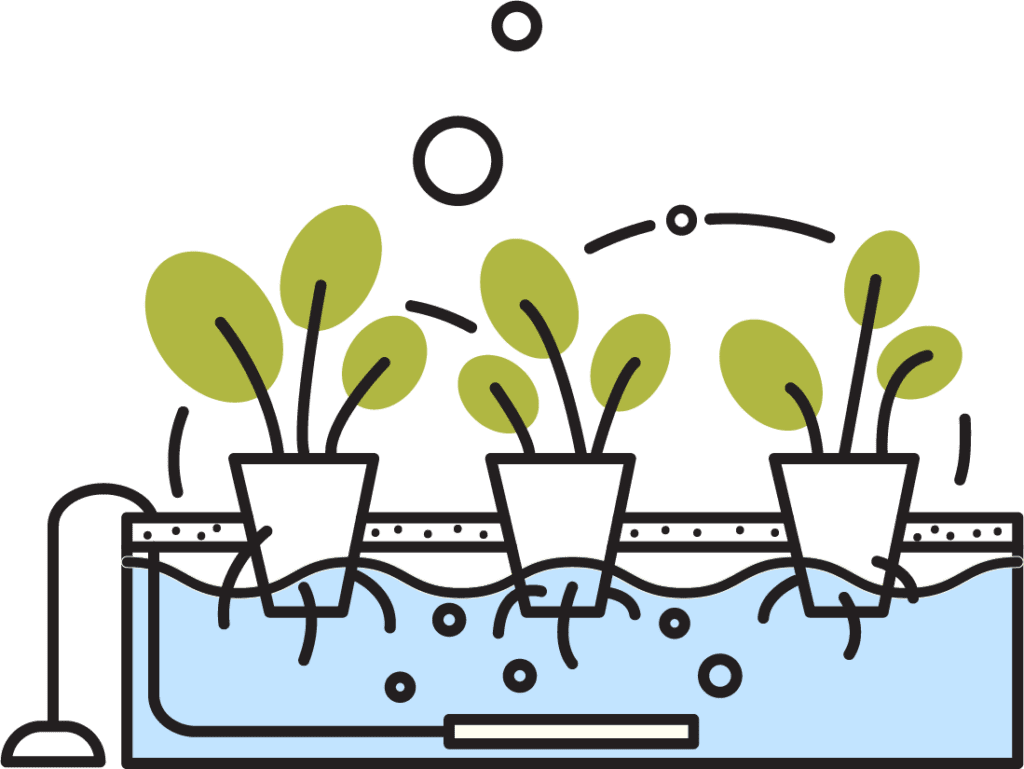Hydroponic Gardening For Beginners
Hydroponic gardening, also known as soilless gardening, is a technique used for growing plants without conventional soil. Instead, a water solution rich in nutrients is used to grow plants, providing them with all the necessary minerals and components. This novel approach has gained popularity in recent times due to its numerous advantages over conventional gardening methods. Hydroponic gardening offers greater control over the growth of the plants, their water usage, and their general well-being, as it is independent of the soil.
There are many advantages associated with hydroponic farming, such as faster growth rates, higher yields, and the ability to grow crops in areas where resources are limited. Hydroponic agriculture minimizes the risk of soil-borne diseases and pests, as it eliminates the need for weeding. Consequently, it is the best option for individuals who wish to grow plants in a controlled and hygienic environment. Because hydroponic gardening methods use less water, they are more sustainable and environmentally friendly.
Getting Started with Hydroponic Gardening
For beginner farmers who want to use hydroponic farming, it's important to know about different types of hydroponic equipment. The wick system and the water culture method are two popular methods for beginners. These systems are easy to set up and maintain, making them ideal for hydroponic farming newbies. The wick system uses a wick to deliver water and essential nutrients to the roots of the plants, while the water culture technique involves directly soaking the roots in a nutrient-rich medium.
To encourage plant growth, it's essential to consider factors such as artificial or natural lighting, humidity, temperature, and ventilation to ensure optimal conditions. It's also important to make the area easily accessible for maintenance tasks such as checking nutrient levels and making any necessary changes to the system.
The next step is to obtain the necessary materials and equipment for constructing a hydroponic system, which usually includes artificial lighting, nutrient solutions, trays or containers for growing plants, a pump, and a pH meter. The amount of equipment required depends on the size of your business and the type of plants. Investing in proper equipment is crucial for healthy and productive plants, followed by setting up the hydroponic system.
Providing the necessary nutrients for optimal growth is critical for plants and should be done properly. Hydroponically grown plants receive all the nutrients they need through a carefully measured mixture of minerals and vitamins dissolved in water, known as the nutrient solution. It's essential to consider the nutrient needs of the plants and adjust the solution accordingly. Maintaining a balanced pH is also crucial because it affects the plant's ability to absorb nutrients from the solution. Regularly checking and adjusting the pH is necessary to ensure that the plants are getting the best nutrition.
For plant growth, maintaining the proper pH is critical in hydroponic systems. Different plants have different pH preferences, with most thriving in an environment that's slightly acidic to neutral, typically in a pH range of 5.5 to 6.5. Imbalances in pH levels can lead to sluggish plant growth and decreased production, resulting in inadequate nutrition or toxicities. Regularly checking the pH of the nutrient solution and making necessary modifications to keep it in the desired range is crucial.
In hydroponic gardening, the roots of plants need enough oxygen. The roots in traditional gardening get oxygen from the air spaces. However, in hydroponics, the roots are in water, which can limit their oxygen intake. When there's not enough oxygen, root rot can occur, resulting in harmful anaerobic bacteria. To prevent this, hydroponic systems introduce oxygen to the roots through methods like air pumps or air stones, promoting healthy root development and plant growth.
For beginner hydroponic gardeners, it's recommended to choose plants with shallow roots that grow quickly and can handle changes in water and nutrient levels. Lettuce is a popular choice among novices because it matures in just a few weeks, requires low maintenance, and grows quickly. Parsley, basil, and mint are also great options due to their small size and adaptability to rich soil. They're also versatile in cooking and easy for inexperienced growers to cultivate.
When selecting plants for a hydroponic garden, consider the space and lighting requirements. Bigger plants like tomatoes and cucumbers need more space and a larger hydroponic system. Smaller plants like lettuce and herbs can grow in smaller spaces. Different plants have different light needs, some thrive on little light while others require lots of it. These factors should be considered when planning the hydroponic garden to ensure the plants fit well in the space and light available.
Choosing quality seeds from reliable sellers, checking the expiration date, and understanding the requirements of each plant is essential. Proper germination of seeds is crucial before introducing them to the hydroponic system. Seeds can be wiped or soaked in hot water to promote germination. Adequate moisture, temperature, and illumination are needed for healthy seed germination. Choosing and germinating seeds carefully gives hydroponic growers a good start for their crop.
After planting the seeds, it's important to set up the hydroponic system correctly to ensure optimal plant growth. First, determine the best system for the plants and available space. Different systems have different advantages and disadvantages, such as drip irrigation, deep water culture (DWC), and nutrient film method (NFT). Assemble the system properly, ensuring that each part is appropriately sealed and connected to prevent any leakage and ensure an efficient supply of nutrients.
Hydroponic gardening is easy to start with the right system. It allows plants to grow without soil, giving growers more control over water and fertilizer and healthier plants that produce more fruit. With the right information and guidance, beginners can learn the basics of hydroponic gardening.
Is Hydroponic Gardening At Home For You?
Hydroponic Indoor Gardening for Beginners
Links:

No comments:
Post a Comment